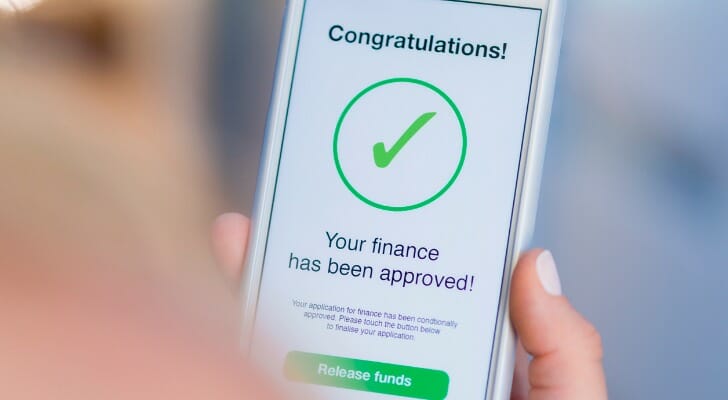Between vibrant cities like Nashville and quiet towns deep in the Appalachians, Tennessee might have something for everyone. Life in the Volunteer State means steeping yourself in history, culture and natural beauty. Buying a home, however, is a big financial decision that can be hard for many. This is why the federal government and Tennessee Housing Development Agency (THDA) offer first-time homebuyer programs to help you navigate the process. Check out the below options and consider enlisting the help of a financial advisor when integrating your mortgage into your financial plan.
Federal First-Time Homebuyer Programs
Tennessee is home to some of the more affordable areas to buy a home. This typically brings below-average mortgage rates and lower-than-average property taxes. It can be a great place to access first-time homebuyer programs that are backed by the federal government. Here are details on the most popular federal programs.
FHA Loans
| Pros | – Low down payment – Flexible credit approval |
| Cons | – Borrowers with low credit scores may need to make higher down payments |
| Eligibility | – Credit score of 500 or above – Down payment of at least 3.5% – Debt-to-income ratio of less than 43% |
| Best For | – Anyone lacking a squeaky-clean credit history or adequate savings for a down payment |
The Federal Housing Administration backs FHA loans, which are a great option for first-time homebuyers throughout the country. Rather than the usual 20%, borrowers only need to cough up a 3.5% down payment at the time of purchase.
Better yet, FHA loans are available to almost all potential borrowers. You need a credit score of 580 to receive the down payment perk in its full glory, you can still qualify with a score as low as 500. You’ll need to make a down payment closer to 10%, but that’s still half the usual amount.
VA Loans
| Pros | – Potential for no down payment – No private mortgage insurance – Reduced closing costs |
| Cons | – Must pay VA fee – Application process can be drawn out |
| Eligibility | – Credit score of 620 or above – Must be a current or former military member, spouse or other beneficiaries |
| Best For | – Veterans without enough income or savings to afford a down payment |
The Department of Veterans Affairs (VA) insures VA loans to help veterans become homeowners. Since many veterans don’t earn enough monthly income or have sufficient savings to afford a down payment, VA loans do not make you pay one.
Since the government will back part of your risk, you also won’t have to get private mortgage insurance (PMI). PMI is usually required for any borrowers that provide less than a 20% down payment, so this is a big perk.
To qualify for these impressive perks, veterans need a credit score of at least 620. You also need to contribute 1.4% to 2.3% of your home’s value into the VA fund, depending on the size of your (optional) down payment. VA loans usually come with low closing costs too, leaving even more money in your wallet.
USDA Loans
| Pros | – No down payment – Flexible credit approval |
| Cons | – Not available to anyone that qualifies for a conventional mortgage – Not available in some areas |
| Eligibility | – Adjusted household income must be equal to or less than 115% of the area median income – Home must be in an eligible area |
| Best For | – Low- to mid-income borrowers looking to live in a rural or semi-rural area |
The United States Department of Agriculture (USDA) sponsors the “Section 502 Single Family Housing Guaranteed Loan Program.” Better known as USDA mortgages, these loans attract new homebuyers to rural and semi-rural communities. So long as you have a decent credit history, they completely eliminate the need for a down payment.
To qualify, your household income must fall within 115% of the median income for the area you want to live in. You also have to prove that you are unable to secure a conventional mortgage. Don’t worry if your score falls a bit lower on the FICO® scale. You’ll just have to pay a down payment, typically around 10% of your home’s value. At half the standard down payment size, it’s still a big improvement from what most homebuyers experience.
Good Neighbor Next Door Program
| Pros | – 50% flat discount on home price |
| Cons | – Not available in most areas or for most people |
| Eligibility | – Home must be your primary residence for at least three years – Must be a police officer, firefighter, emergency medical technician or teacher |
| Best For | – Public servants without adequate savings for a home |
The U.S. Department of Housing and Urban Development‘s (HUD) Good Neighbor Next Door Program is more of a discount than a loan. It rewards police officers, firefighters, emergency medical technicians, and pre-K through 12th-grade teachers with a 50% discount on the purchase price of their first home. HUD encourages participants to use a conventional, VA or FHA mortgage to finance the rest of the home.
For such spectacular benefits, it’s unsurprising that there are conditions. For one, homes must be located within a HUD-designated “revitalization area” to qualify. Most notably, you must agree to stay in the home for at least three years after the purchase. So long as you meet these terms, you can sell the home and hold onto any equity and profit once the three years are up.
Fannie Mae/Freddie Mac
| Pros | – Low down payment – Flexible credit approval – Multiple loan types available |
| Cons | – Higher rates than other federal programs |
| Eligibility | – Must earn within location-specific income requirements |
| Best For | – Borrowers looking for a low down payment option that doesn’t qualify for other federal programs. |
Fannie Mae’s HomeReady® loan can be accessed with as little as 3% down. To qualify, you’ll need a credit score of at least 620 and must earn an income at or near the U.S. median. With a HomeReady loan, you must have private mortgage insurance at the time of purchase. Luckily, once you’ve accrued 20% equity in your new home, you can cancel it.
Freddie Mac’s Home Possible® program offers the “Home Possible: 97% LTV,” which stands for loan-to-value. This means the down payment is 3%. With a Home Possible loan, you can choose a 15-year loan or a 30-year one. You can also go with fixed rates or an adjustable-rate mortgage.
It also has the cancelable private mortgage insurance that comes with a HomeReady loan. Perhaps best of all, you won’t need a strong (or any) credit history to qualify.
NADL
| Pros | – No down payment – No private mortgage insurance – Flexible credit approval – Reduced closing costs |
| Cons | – Not available in most areas or for most people |
| Eligibility | – Home must be located in an eligible territory – Must be a current or former military member of Native American descent, their spouse or another beneficiary |
| Best For | – Native American veterans that don’t have the necessary income or savings to afford a down payment |
The Department of Veteran Affairs’ Native American Direct Loans (NADL) is designed specifically for Native American veterans and their spouses. Some NADL benefits, like lowered closing costs and elimination of the private mortgage insurance requirement, are extended from regular VA loans. In much the same way, a NADL can also cover up to 100% of your home’s value.
To make things even better, you do not need a strong credit history to qualify. Just remember that the home must be located on allotted lands, Alaska Native corporations, Pacific Island territories or federally-recognized trusts.
Tennessee First-Time Homebuyer Programs

The Tennessee Housing Development Agency (THDA) offers several programs to help Tennesseans purchase their first home. All THDA mortgages are 30-year fixed-rate loans. They also have down payment assistance grants and mortgage tax credits to make homeownership even more affordable.
THDA doesn’t review applications or lend money itself, but it does approve and connect first-time homebuyers with lenders across the state. Any buyers who haven’t owned their primary residence in the last three years are eligible to participate. In some cases, income and purchase price limits also apply.
Great Choice Home Loan
| Pros | – Low down payment – Low-interest rates – Potential to combine with Down Payment Assistance to save even more |
| Cons | – Must meet lender requirements and county-specific income limits |
| Eligibility | – Credit score of 640 or above – Income and purchase price limits dependent on household size and home location |
| Best For | – Low- and mid-income Tennesseans without adequate savings for a down payment |
THDA’s Great Choice Home Loan Program helps first-time homebuyers overcome several common obstacles. It’s especially helpful for buyers scraping together the money they need for a down payment. With decent credit, you can borrow up to 96.5% of your home’s value. That means you only need a 3.5% down payment at the time of purchase.
On top of location-specific income and purchase price limits, borrowers need a FICO® score of 640 or above to qualify. So long as you can secure a Great Choice loan, you’re automatically eligible for THDA down payment and closing cost assistance as well. That means even more savings as you work toward your monthly payments.
THDA Veterans Homeownership for the Brave Loan Program
| Pros | – Potential for no down payment – Reduced interest rates – Potential to combine with Down Payment Assistance to save even more |
| Cons | – Must meet lender and VA, FHA, or USDA requirements |
| Eligibility | – Credit score of 640 or above – Must be an active duty military member, veteran, or reservist with at least 180 days of active duty service; their spouse or another beneficiary – Income and purchase price limits dependent on household size and home location |
| Best For | – Tennessee veterans without adequate savings for a down payment |
The THDA has launched the Veterans Homeownership for the Brave Loan Program to celebrate and honor the brave people who serve in the military. It is a special type of Great Choice loan available only for active-duty service members, veterans, reservists and their spouses. FHA and USDA loans can come with the same 3.5% down payment requirement. If you’re getting a VA-backed loan, you may not have to pay any down payment at all!
Homeownership for the Brave loans has the same requirements as a Great Choice loan with the additional military service stipulation. Like a Great Choice loan, a Homeownership for the Brave loan can be combined with additional financial assistance so long as you complete a homebuyer education course.
Great Choice Plus
| Pros | – Receive up to 5% of your home’s purchase price – Zero interest – Deferred repayment |
| Cons | – Must be repaid in most cases |
| Eligibility | – THDA loan participant – Must complete a homebuyer education course |
| Best For | – Homebuyers taking advantage of THDA programs that need more help to cover their down payment or closing costs |
As long as you qualify for a Great Choice Home or Home Ownership for the Brave loan, you are also eligible for a down payment and closing cost assistance through Great Home Plus. This comes in the form of a no-interest second mortgage worth up to 5% of your home’s value.
Best of all, you don’t have to pay a penny back until you sell, move out of or refinance your home. Since the loan doesn’t carry any interest, you won’t ever pay more than what you borrowed.
The only “catch” for Great Choice Plus is that you have to complete a homebuyer education course from a THDA-approved instructor before you make the purchase. Since classes can be taken online or in person, it’s not too difficult of a condition to meet. Plus, the course will teach you valuable lessons about the responsibilities and realities of homeownership.
HHF Down Payment Assistance
| Pros | – Receive up to $15,000 – Zero interest – Deferred repayment – Forgiven over time |
| Cons | – Must meet THDA and HHF requirements |
| Eligibility | – THDA loan participant – Home must be in an eligible area – Must complete a homebuyer education course |
| Best For | – Tennesseans taking advantage of THDA programs in certain, downtrodden areas |
HHF stands for Hardest Hit Fund, which is a program the federal government created in 2010 to help revitalize areas that were especially damaged after the 2008 mortgage crisis. In Tennessee, the Hardest Hit Fund provides down payment assistance for THDA homebuyers looking to buy in designated areas that the authority considers to be having an especially difficult time recovering.
An HHF down payment assistance loan is worth up to $15,000. Like Great Home Plus, it is a second mortgage that doesn’t carry any interest. Also as with Great Home Plus assistance, you won’t have to make monthly payments. Unlike Great Home Plus, HHF Down Payment Assistance has a 10-year term. And, if you stay in the home for more than five years, the loan balance is forgiven at a rate of 20% per year. Stay for 10 years and the loan is totally forgiven.
To qualify, you must have a Great Choice Home first mortgage in an HHF-designated zip code. You also have to purchase an existing home, meaning no new construction is allowed. Last but not least, you will have to complete a homebuyer education course both pre- and post-purchase. Keep in mind that if you sell, move out of, or refinance your home within the first five years, you will have to repay the entire amount.
Take Credit MCC Program
| Pros | – Reduced federal tax bill – Lasts the entire lifetime of the loan until repayment, refinancing, or sale |
| Cons | – Cannot be combined with a THDA loan |
| Eligibility | – Must use a THDA-approved lender – Must complete a homebuyer education course – Income and purchase price limits dependent on household size and home location |
| Best For | – Tennessee homeowners looking to save on their annual tax bill |
In addition to loan and down payment assistance programs, the Tennessee Housing Development Agency provides eligible homebuyers with a Take Credit Mortgage Credit Certificate (MCC) to make homeownership even more affordable. Through this program, borrowers receive an annual federal tax reduction of up to $2,000 a year.
You can claim the credit every year for the life of the loan so long as the home remains your primary residence. That means it could save you thousands of dollars over time. Eligibility requirements for the Mortgage Credit Certificate are similar to other THDA programs, including completion of a homebuyer education course. Unfortunately, you cannot take advantage of the Take Credit MCC program if have a THDA loan.
Bottom Line
There are several good assistance options for those looking to buy a house in Tennessee. Whether you’re considering a federal or state-backed program, you could get assistance with your down payment or access to lower interest rates on your mortgage. Some programs also have lower eligibility requirements, opening up the ability to buy a home in Tennessee for more people.
Tips for Getting a Mortgage

- It’s important to not be afraid to ask for help when you need it. A financial advisor can help get your finances prepared to buy your first home. Finding a financial advisor doesn’t have to be hard. SmartAsset’s free tool matches you with up to three vetted financial advisors who serve your area, and you can have a free introductory call with your advisor matches to decide which one you feel is right for you. If you’re ready to find an advisor who can help you achieve your financial goals, get started now.
- Analyze lenders, interest rates and down payment requirements for each mortgage program before you pick one. Just because you qualify doesn’t mean it’s right for you. Also, remember to consider moving and closing costs as well as the down payment.
Photo credit: ©iStock.com/courtneyk, ©iStock.com/sturti, ©iStock.com/Jirapong-Manustrong
